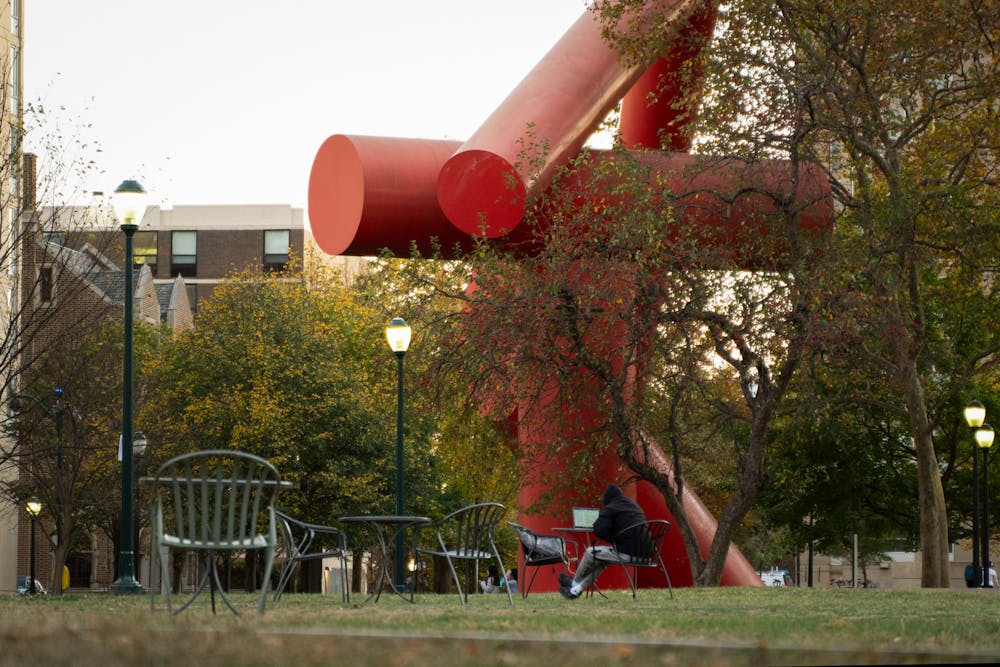Congressional Republicans announced an investigation into the Ivy League’s eight universities — including Penn — for alleged violations of antitrust laws on Thursday.
An April 8 letter sent to Penn President Larry Jameson by the United States House of Representatives and Senate Committees on the Judiciary accused the Ivy League of colluding to raise tuition costs and engaging in unfair financial aid practices. The letter demanded that the University turn over documents related to admissions and communications by April 22.
“By apparently engaging in anticompetitive pricing practices, the University of Pennsylvania may be acting inconsistent with U.S. antitrust laws, and we appreciate your cooperation in our examination of whether legislative reforms are necessary to address this conduct,” the letter read.
“We have received the letter and are carefully reviewing it,” a University spokesperson wrote in a statement to The Daily Pennsylvanian. “We will cooperate with their information requests.”
The letter was signed by Rep. Jim Jordan (R-Ohio), the chair of the House Committee of the Judiciary; Sen. Charles Grassley (R-Iowa), the chair of the Senate Committee of the Judiciary; Rep. Scott Fitzgerald (R-Wis.), the chair of the House Subcommittee on the Administrative State, Regulatory Reform, and Antitrust; and Sen. Mike Lee (R-Utah), chair of the Senate Subcommittee on Antitrust, Competition Policy, and Consumer Rights.
The committees requested documents related to “policies or practices on financial aid,” as well as the “568 Presidents Working Group”, a consortium of American higher education institutions that practiced need-blind admissions before it was dissolved in 2022. Other demands within the letter included files “referring or relating to the calculation or creation of tuition rates,” financial aid distribution, student admissions, and communications between Penn employees and third-party organizations — such as College Board and the Common Application.
The letter clarified that the legislators are “not seeking and do not wish to receive personally identifiable information about current or former students” and requested that Penn redact students’ identities when providing relevant documents to “respect their privacy.”
Among the letter’s allegations was a claim that Penn and the seven other Ivy League institutions violated the Sherman Antitrust Act, a federal law prohibiting agreements between competitors that “limit competition on price, output, or quality of products.”
RELATED:
Trump memo revokes security clearances of former Penn lecturer, all University affiliates
Conservative group sues Penn, alleges Black Doctors Directory discriminates against white physicians
“The House and Senate Committees are concerned that the Ivy League member institutions’ coordinated practices and alleged collusion violate the Sherman Act and that the institutions continue to benefit from their prior collusion, despite no longer having an antitrust exemption,” the legislators wrote in the letter.
In 1994, Penn and seven other Ivy League institutions settled a suit with the Department of Justice that accused all eight universities of colluding to provide financial aid offers. After the settlement, the DOJ carved out an exception to antitrust law for elite institutions that permitted Penn and other universities to collaborate on financial aid methodologies — provided that all students were admitted on a need-blind basis.
Elite universities and colleges went on to form the 568 Presidents Group for calculating financial aid. Penn was a member of the group for 13 years but left in 2020, citing the University’s need for more flexibility in offering financial aid awards to students.
Penn is now one of four universities that has yet to settle an ongoing lawsuit with the DOJ alleging that the 568 Presidents Group was a “price-fixing cartel” colluding to decrease financial aid and benefit wealthy students. The defendants claimed that information sharing among the universities decreased the amount of financial aid awarded to about 200,000 students over a 20-year period and used illegal price-fixing practices to overcharge them by $685 million.
An additional motion — filed on Dec. 16, 2024 — stated that Penn and the other universities in the suit continued to give preference to wealthier students while claiming to be need blind, rendering the 1994 exception invalid.
Penn was also among 40 elite universities named in a separate price-fixing lawsuit in October of 2024 that alleged that it withheld funding from students by considering the incomes of noncustodial parents when determining financial aid packages.
The GOP action comes after a wave of funding freezes to Ivy League schools by 1968 Wharton graduate and President Donald Trump’s administration, including a $175 million funding freeze at Penn.









